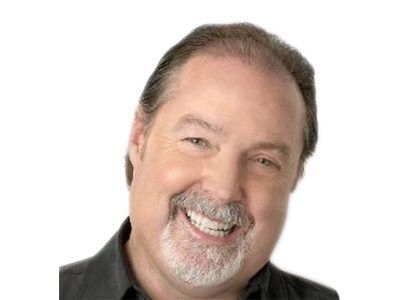Dutch general election focuses on migration and housing crisis as Wilders seeks another win
News > Business News

Audio By Carbonatix
10:16 PM on Wednesday, October 22
By MIKE CORDER
HAARLEM, Netherlands (AP) — Palwasha Hamzad wants the Dutch election to be not about migration, but about tackling the chronic housing shortages in the Netherlands.
For Daniëlle Vergauwen, it's about putting "our own people" first.
Their opposing views sum up two of the key issues in campaigning for the Oct. 29 election for all 150 seats in the Dutch parliament's legislative House of Representatives. They also echo debates about migration across Europe as right-wing politics gain support.
Far-right, anti-Islam lawmaker Geert Wilders ' Party for Freedom, known by its Dutch acronym PVV, swept to a shock victory in 2023 on a pledge to drastically rein in migration. He triggered the downfall of the subsequent four-party coalition government in June by withdrawing his lawmakers from the Cabinet in a dispute over implementing his crackdown.
This time around, Wilders’ campaign pledge is a “total halt” to asylum-seekers. An analysis of parties’ election manifestos by the Dutch Order of Lawyers said that such a policy would be a breach of international treaties.
“We have too many foreigners, too many asylum-seekers, too much Islam and far too many asylum-seeker centers,” Wilders’ manifesto says. What he casts as the ”open-borders policy” of his political rivals “is totally destroying our country.”
Wilders' party leads polls as the voting day nears, but even if he manages to win again, he is unlikely to manage to piece together a coalition, because many other mainstream parties have ruled out working with him. Other more mainstream parties also have included moves to cut migration in their manifestos as the issue cuts across political fault lines.
Violent protests against new asylum-seeker centers have broken out in recent months in towns and villages across the Netherlands, with protesters lighting flares and sometimes waving a tricolor flag that was adopted by Dutch Nazi sympathizers around World War II. Wilders says he's opposed to violence.
Hamzad is a beneficiary of long-standing Dutch hospitality to asylum-seekers that has taken a hit in recent years. She fled the Afghan capital, Kabul, as a child and eventually settled in this historic city close to Amsterdam. In near fluent Dutch, she identifies herself now as a proud resident of Haarlem, where she works in elementary education and is a municipal representative for the Green Left, the party that has joined forces with the Labor Party to present a united center-left bloc at the election.
Hamzad argues that people being forced to sleep in cars, and families having to wait for years for social housing are far more pressing issues than reining in migration. She says the housing crisis isn't caused by “new Netherlanders,” but instead by years of right-leaning ruling coalitions.
“We see that the free market has had too much influence, and social provisions have been more and more eroded,” she said.
Vergauwen was born and raised in the rural village of Sint Willebrord, where nearly three out of every four votes went to Wilders' party at the 2023 election.
“We’re more for our own people,” she said outside the clothing store she owns and runs in Sint Willebrord's main street. “Of course, we grant them more than we grant the foreigners who come in.”
Wilders conflates the issues of housing shortages that sees people wait for years for a subsidized apartment or priced out of overheated housing markets. He argues that waiting lists are so long because refugees get preferential treatment.
Vergauwen agrees.
“You increasingly see people coming to the Netherlands because things are getting worse in their own country," she said. "But then you’ll end up with your own children no longer being able to have a home. And I would find that very sad.”
The official Dutch government statistics office says that overall migration last year was down by 19,000 from the previous year to 316,000 in this nation of 18 million, including people whose asylum applications were accepted. Around 40% came from Europe and almost half from the rest of the world. About one in 10 were Dutch nationals returning from overseas.
The government says that municipalities have other options for housing refugees, not just social accommodation. The Dutch refugee council rejects Wilders’ argument that people granted a protection visa to live in the Netherlands are the cause of the housing crisis, saying there are simply not enough houses being built.
Léonie de Jonge, Professor of Far-Right Extremism at the University of Tübingen in Germany, says Wilders “has been super successful in politicizing immigration as a cultural threat to the homogeneity of the Netherlands.”
Keeping the issue high on the political agenda "really helps to explain why the PVV is so successful,” she added.
De Jonge said that while support for Wilders remains high, voters could still punish him at the ballot box for failing to deliver on his promises after the 2023 election.
Hamzad says she is optimistic the election will bring a change of political direction and will be remaining in her adopted homeland regardless of the outcome.
“It's my life and my future,” she said. “My commitment is here in the Netherlands.”









